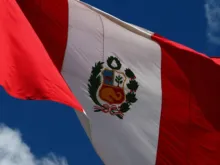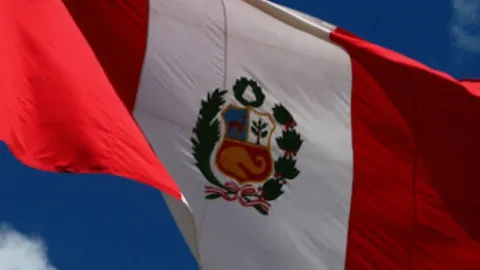The Rapidly Shifting Landscape of Arbitral Award Enforcement in Vietnam
August 24, 2025
Vietnam recently implemented sweeping reforms to streamline its government structure including its court system. Vietnam has also created an international financial centre (“IFC”) that is subject to a separate legal regime and will be promoted in part through a liberalized arbitration framework. These changes will likely have a far-reaching impact on the arbitration landscape in Vietnam, as they create three separate enforcement regimes in Vietnam for arbitral awards.
Overview of Recent Reforms
With the aim of building a two-tier effective and efficient government structure, Vietnam reduced the number of ministries from 30 to 22, and the number of provincial and municipal administrations (for large cities) from 63 to 28.
Vietnam also streamlined its court system. Local District Courts remain at the base of the system with expanded jurisdiction on civil matters. Provincial and Municipal Courts exercise appellate jurisdiction. At the apex, the Supreme People’s Court (“SPC”) exercises supervisory jurisdiction upon request from the Chief Justice or the Chief Procurator. For domestic arbitration, Vietnam has consolidated the jurisdiction of the courts to set aside awards. Such jurisdiction will now belong to the three Municipal Courts seated in Hanoi, Danang, and Ho Chi Minh City.
In contrast, applications for the enforcement of foreign arbitral awards will be heard first by the local District Courts under the codified provisions of the New York Convention rather than the Provincial Courts or Municipal Courts. With the abolition of the High-level Courts, appellate jurisdiction over enforcement applications will now lie with the relevant Provincial or Municipal Courts. SPC supervisory review is also possible.
Of even greater import is the creation of the IFC (effective on 1 September 2025), with two locations, Ho Chi Minh City and Danang. As noted above, the IFC will be subject to a separate legal regime. With eight implementing decrees to be issued in August 2025, there is no doubt that the IFC will impact the arbitration landscape in Vietnam. Specifically, according to the National Assembly resolution creating the IFC, parties can waive set-aside rights for arbitral awards rendered by the IFC’s new arbitration centre, providing the possibility of immediate enforcement through the local civil judgment enforcement agency.
Each of these developments is analyzed further below.
Judicial Review of Domestic Arbitral Awards
Under Vietnamese law, a domestic arbitral award is any award which is not a foreign arbitral award—the definition of the latter is discussed below. Domestic arbitral awards can be directly enforced upon request to the relevant judgment execution agency without judicial assistance, although the specific procedures may vary by province or city. When it comes to the setting aside of domestic awards, the courts’ jurisdiction has been consolidated, following a proposal of the major legislative committee of the National Assembly. The proposal was enacted into law with the endorsement of the SPC.
Under the new regime, applications to set aside domestic awards must be filed with the Municipal Court with jurisdiction over the place where the arbitral award was rendered.
To determine where any award was rendered, an SPC resolution from 2014 provides for a three-stage analysis: (i) the arbitral award is rendered at the location specified in the award by the arbitral tribunal; (ii) if the location where the award was rendered is not specified in the award itself, then the applicant seeking to set aside the award must prove the relevant location; and (iii) if the applicant cannot do so, then the court will instruct the applicant to request a determination from the arbitral tribunal and the court will take into account such determination in ruling on its own jurisdiction.
Based on the place where the arbitral award was rendered, there are three Municipal Courts, each of which has expanded regional jurisdiction, where an application to set aside a domestic arbitral award can be filed. The Hanoi Municipal Court has jurisdiction over Hanoi, Hai Phong, and sixteen other provinces and cities in the northern part of Vietnam. The Danang Municipal Court has jurisdiction over Danang and six other provinces and cities in the central part of Vietnam. The Ho Chi Minh City municipal court has jurisdiction over Ho Chi Minh City, Can Tho, and seven other provinces and cities in the southern part of Vietnam.
Overall, the new changes should have a very positive impact on the development of domestic arbitration. Building up the capacity of three specialized courts with broad regional jurisdiction, thereby concentrating relevant judicial expertise and experience, will undoubtedly promote more uniformity in jurisprudence, better guidance for arbitral tribunals, and more predictable outcomes. This is especially important since set-aside decisions are final and unappealable.1 If the three courts diverge in their approach to a particular type of setting-aside application, parties will also have a certain amount of forum-shopping flexibility. For instance, they may specify the place of dispute resolution in their arbitration agreement, or, in the case of arbitrations administered by the Vietnam International Arbitration Centre (“VIAC”), choose between the VIAC office in Hanoi or in Ho Chi Minh City as the administering office for the arbitration, with the related city serving as the place of dispute resolution. In sum, this reform is a major step forward in the development of domestic arbitration and could incentivize foreign investors to choose domestic arbitration for ordinary disputes with vendors, customers, or in securities or commercial housing transactions.
Enforcement of Foreign Arbitral Awards
The new reforms will also impact the regime for the enforcement of foreign arbitral awards. However, certain challenges remain.
Under the Law on Commercial Arbitration, a foreign arbitral award means “an award pronounced by a foreign arbitration outside or within the Vietnamese territory.” Foreign arbitration means “an arbitration formed under a foreign law on arbitration and selected as agreed by the parties to settle a dispute outside or within the Vietnamese territory.” This includes arbitrations administered by institutions outside of Vietnam. In other words, even if an arbitration has its place of dispute resolution in Vietnam, an award issued in such arbitration will be considered a foreign arbitral award if the arbitration was administered by a foreign arbitral institution, e.g., the ICC or SIAC. All foreign arbitral awards must first be enforced by the Vietnamese courts in accordance with the codified provisions of the New York Convention.2
Under the new regime, jurisdiction to hear applications for recognition and enforcement of foreign arbitral awards has been pushed down to the local District Court level. This was a function of the fact that the High-level Courts which used to have appellate jurisdiction over first instance enforcement decisions of Provincial or Municipal Courts have been abolished. Appellate jurisdiction now lies with such Provincial or Municipal Courts, so actions must first be commenced at the court one level below, i.e., the District Court where (i) the award debtor resides or has its head office; or (ii) the property related to the enforcement is located. Thereafter, dissatisfied parties have two opportunities to appeal. Parties can first appeal an adverse District Court decision to the Provincial or Municipal Court having jurisdiction over that District Court. Thereafter, they can also petition the Chief Justice or the Chief Procurator for either of them to request for SPC supervisory review.
Although the old and new regimes both provide for two opportunities to appeal a first-instance enforcement decision, the new regime will likely add to the time and costs needed to enforce a foreign award as the initial proceedings involve lower-level courts. At first instance, the enforcement proceedings may be handled by District Courts with limited or no relevant experience. The appeal may be to a Provincial or Municipal Court also with limited experience. This may be mitigated if the respondent is located in a major city; however, in international trade transactions, the respondent may be located anywhere in the country. Against this backdrop, the new IFC regime provides a third regime.
International Arbitration Centre Within the IFC
The eight implementing decrees due for issuance this month are expected to fully flesh out the new IFC arbitration framework, providing specific details on (i) who can become an IFC member and (ii) what is an IFC business and investment activity.
What we know at the time of writing is that in the IFC regime, members and non-member investors may choose the IFC’s arbitration centre as an alternative to other currently available arbitration options to resolve disputes related to IFC business and investment activities. Most importantly, parties can waive set-aside rights in relation to arbitral awards rendered by the IFC’s arbitration centre. Awards subject to such waiver can be enforced immediately, thereby getting around the potentially lengthy enforcement process for foreign awards in the Vietnamese courts.
Conclusion
Seismic shifts are occurring in arbitral enforcement in Vietnam. Strategic choices will soon have to be made among the three regimes. Hopefully, the upcoming decrees will further clarify the meaning of these shifts. Of course, time will be required to understand the implications of the new rules as well as their application.
This article was written with the assistance of Nguyen Duc Nam and Huy Nguyen Hoang Ba of YKVN LLP.
- 1Without prejudice to the right of (i) the parties to agree to a de novo arbitration, or (ii) one party litigate de novo the dispute.
- 2
This also gives rise to a curious conundrum where awards resulting from arbitrations with a place of dispute resolution in Vietnam which are however administered by institutions outside of Vietnam are effectively not capable of being set aside—pursuant to the Law on Commercial Arbitration, the Vietnamese courts have no set-aside jurisdiction over such awards. Yet, foreign courts will also not have such jurisdiction because the arbitration has a place of dispute resolution in Vietnam. Judicial scrutiny over such awards is only available via the enforcement process.
You may also like











